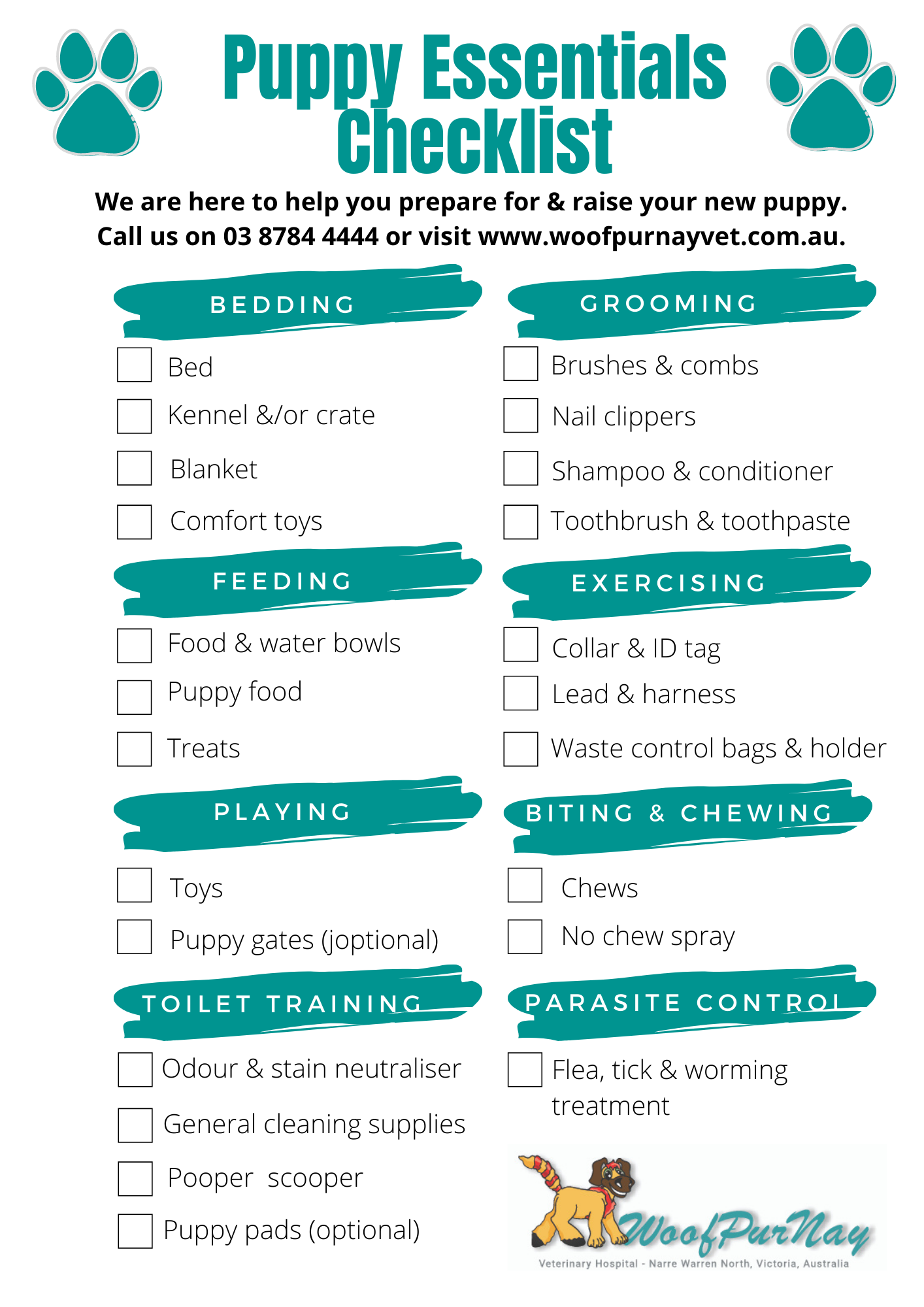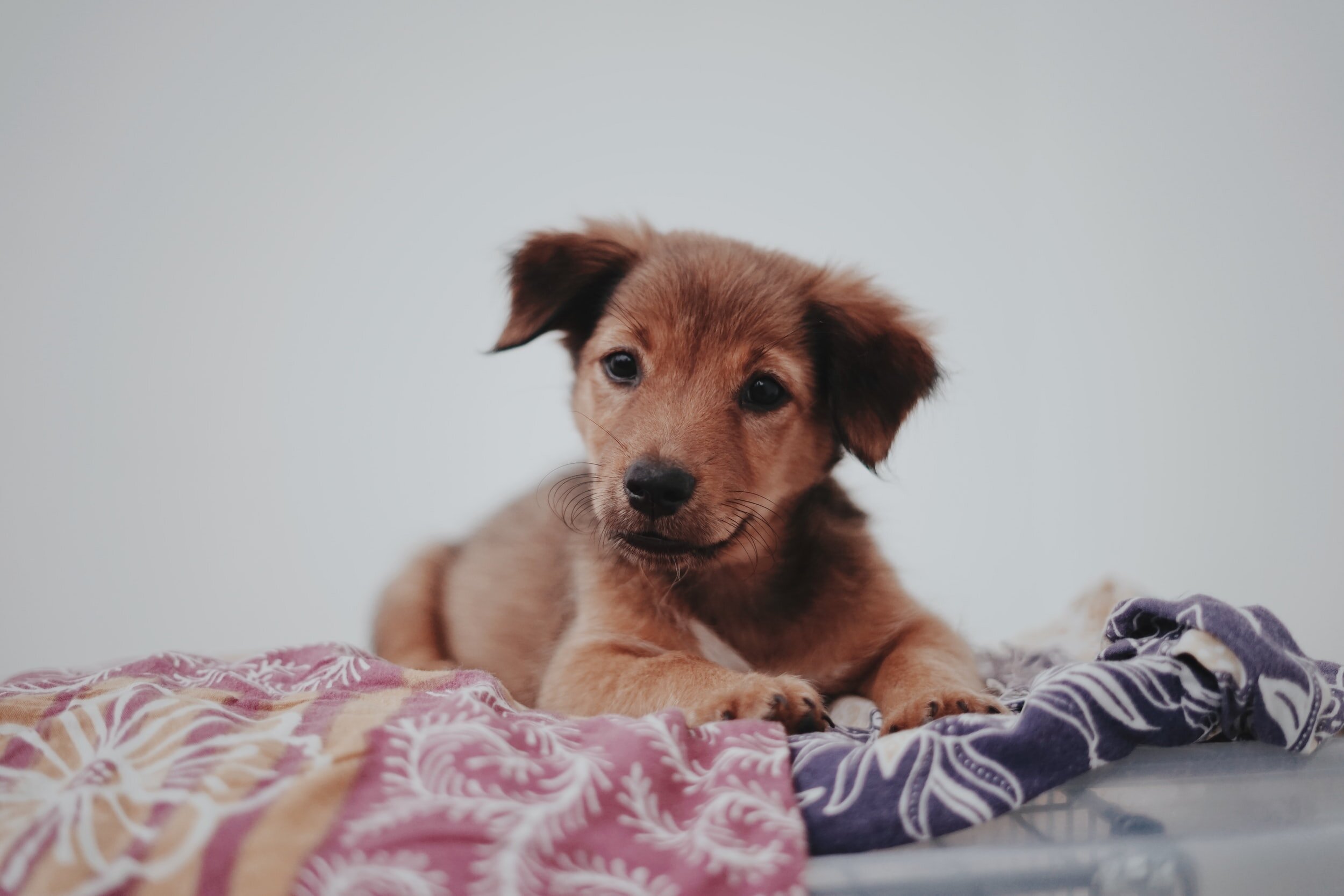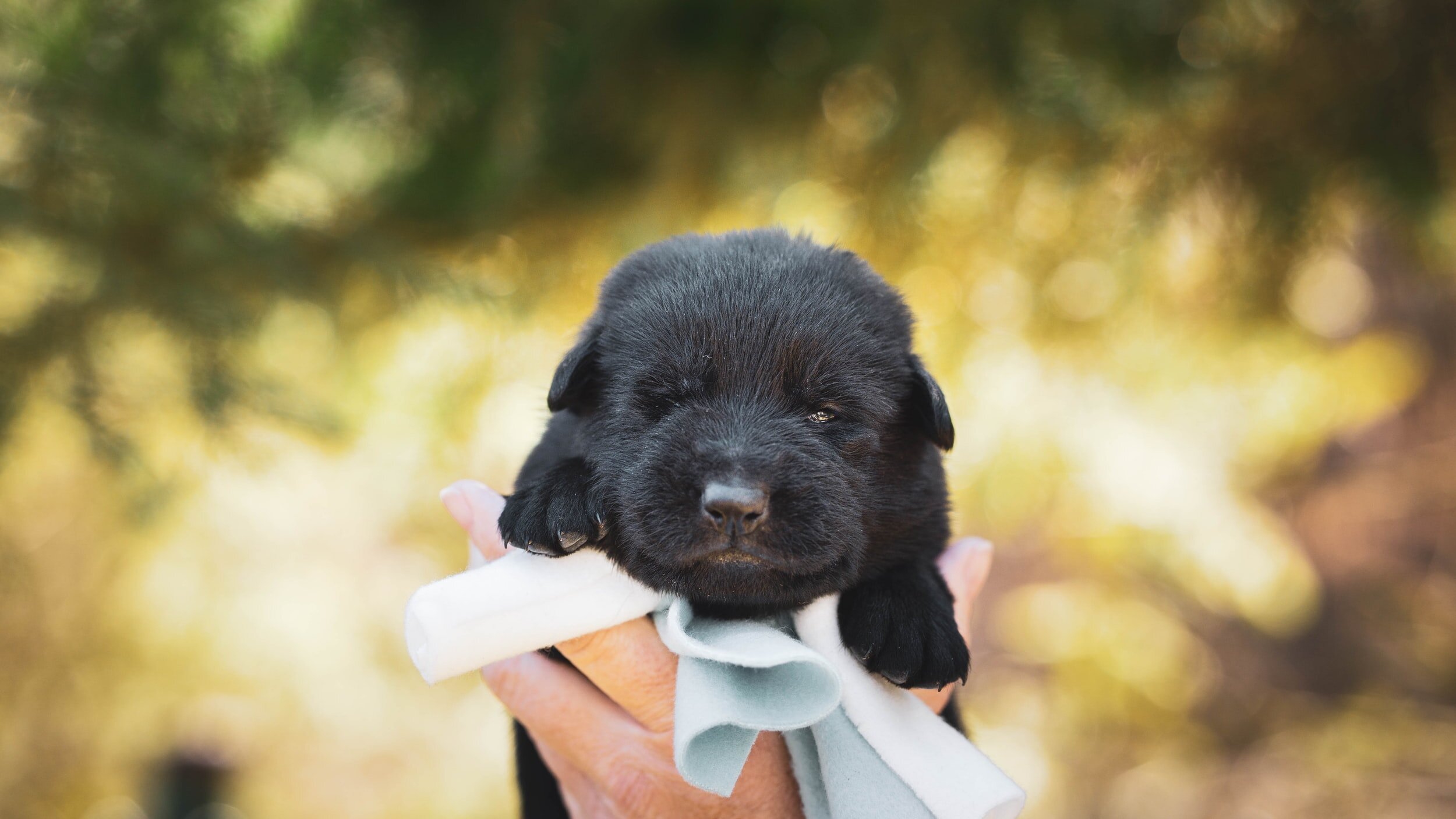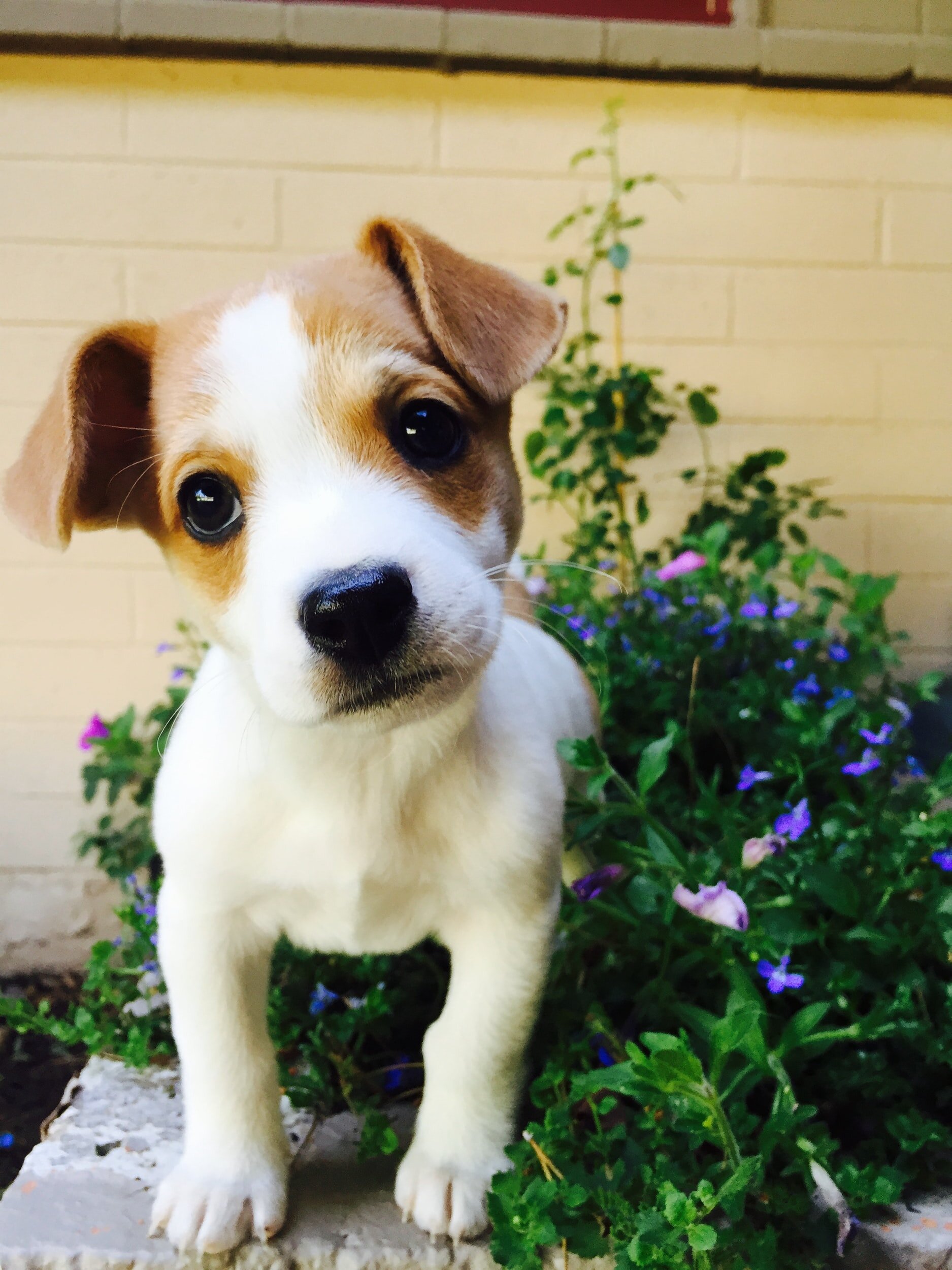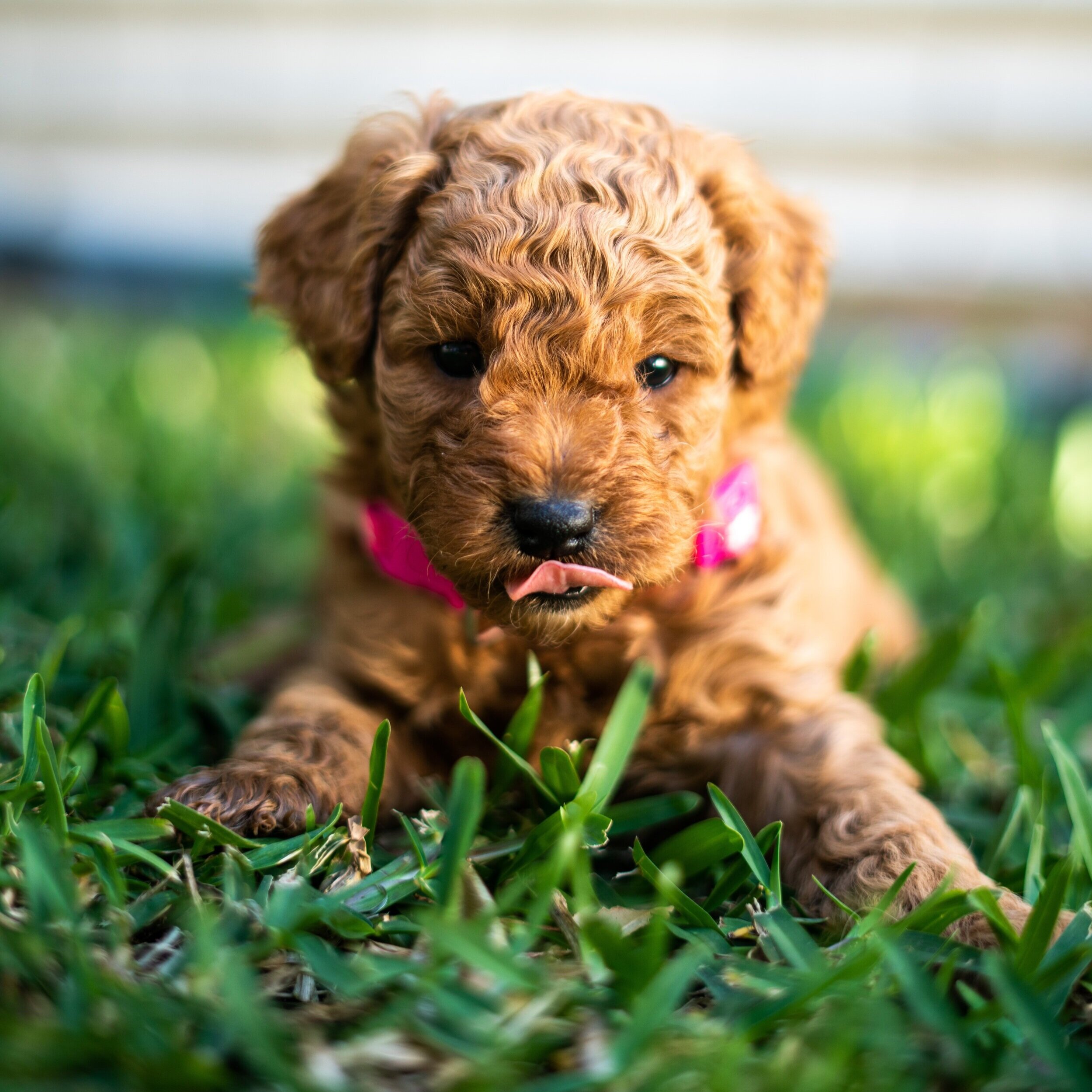Bringing home a new puppy can be a very exciting time and there is lots to do to prepare for their arrival. To make it easy, we have created a resource of new puppy guides and checklists to help you prepare including:
How to prepare your home before your puppy arrives
Items to bring when picking up your puppy
Checklist of the puppy essentials you will need
New puppy important contacts list
We have also created a printable checklist so you can tick each item off the list as you go, allowing you to prepare for your new puppy with ease and focus more on that excitement!
1. Preparing your home for a new puppy
Before bringing your new puppy home, you will need to spend some time getting your home and existing pets ready for their arrival.
Purchase essentials – purchase all the essentials such as food, bowls, bedding, collar & ID tag, leash, crate and/or harness and comfort toy. This article includes a complete checklist of what you will need.
Get new pet ready – set up a place for your puppy to sleep and establish where they will eat, drink, play and go to the toilet. Having their own personal items and special toys can prevent existing pets becoming jealous or anxious.
Puppy proof your home – make sure anything that could be harmful to your puppy is kept securely out of reach. Consider setting up puppy gates or keeping doors shut to block off any areas of your home that you don’t want your puppy to go. Secure your garden to make it safe for your puppy to play and check your boundaries to ensure they can’t squeeze out and escape.
Think of existing pets - if you need to move existing pets’ items, do this ahead of time so they have time to adjust before the new puppy arrives. This helps reduce stress and avoid problems with existing pets being too afraid to use their litter tray, eat or drink when their new furry family member arrives.
Healthy happy pets - make sure all existing pets are up to date with vaccinations and parasite control. Very young pets may not be fully vaccinated yet so it is vital that they only come in contact with other pets that are friendly, healthy and up to date with their vaccinations.
Establish house rules - before your puppy comes home, determine the rules that they will need to abide by to help them settle in and to ensure there is no confusion for everyone. For example:
No & go zones - will they be allowed on the bed, couches or other furniture? Are there parts of the house that are off limits?
Time for everyone - each family member needs time to get to know their new furry addition so make sure everyone gets a chance.
Time out - if your puppy looks overwhelmed, make sure they have a safe and comfortable area to go to for a break.
Exploring & meeting - give your puppy time to explore their new home and environment. Have a plan in place for introducing them to any existing pets.
Love & attention – keep it positive and offer lots of praise and positive encouragement for good behaviour.
2. What to bring when collecting your puppy
Collar, ID tag & lead
Car harness or crate
Comfort toy and blanket
Camera and friend or family member
Rags, old towels & poop bags
3. Puppy essentials checklist
Feeding
Food and water bowls – your puppy will need fresh water at all times and a separate bowl for their meals. Choose two bowls that be suitable for your puppy’s growing size for at least the first year of their life.
Puppy food – as your puppy grows, a complete and balanced diet is important. There are a wide range of puppy food products available that are specifically formulated for your puppies needs. Our vets can provide you with the best advice about what diet is most suitable for your puppy.
Treats – your first month with your puppy will involve lots of training so you will need a supply of healthy treats to reward all their good behaviour.
Bedding
Bed – your puppy will need a suitable place to rest, away from drafts and off the floor. Choose a bed that is easy to clean and allows your puppy to lie flat and completely stretched out without hanging over the edge. Keep in mind the size they will grow into when selecting their bed.
Kennel and/or crate – depending on where your puppy will be sleeping, you will need to supply them with a good quality kennel or crate. Again, keep in mind the size they will grow into. Many crates come with a divider that enables you to adjust the interior size of your crate as your puppy grows. The crate can also be used for safe car travel.
Blanket – add some comfort to your puppy’s bed, kennel or crate with a washable rug, cushions or blanket.
Comfort toys – help your puppy settle into their new home and feel safe and secure by offering them a plush comfort toy. This can be rubbed on their litter mates and mum so you can bring their scent back home with you.
Grooming
Brushes and combs – regular brushing at home will help keep your puppy’s coat in great condition by removing loose hair and preventing the formation of knots and hairballs. It is good to start your grooming routine early to get your puppy used to your gentle touch. Choose a brush or range of brushes that are suited to your puppy’s coat and needs.
Nail clippers – you will need a set of nail clippers to trim your puppy’s nails. There are multiple styles to choose from including scissor clippers, guillotine clippers and grinding tools. If you are unsure or would rather leave cutting your puppies nails to the professionals, you can book an appointment with our groomer or speak to one of our vets.
Shampoo and conditioner – puppies are curious creatures so are bound to get a little messy from time to time exploring around. Keep your puppy’s coat clean and smelling fresh with a gentle shampoo and conditioner that is suitable for your puppy’s sensitive skin.
Toothbrush & toothpaste – your puppy’s dental health is important. Get your puppy into a regular dental routine from the start by using a toothbrush and toothpaste designed specifically for dogs. Aim to brush your puppy’s teeth daily, but even once a week will make a difference.
Exercising
Collar & ID tag – your puppy will need their first vaccinations before they start exploring, however now is the perfect time to start familiarising your puppy with their collar. Have some fun picking out a suitable collar and attach an identification tag with your puppy’s name and your contact details in case they ever become lost.
Lead & harness – a lead is essential when you take you puppy our for exercise or to the vet. Now is a great opportunity to start practicing at home until your puppy has their first vaccination. A car harness is important for car trips to safely secure your puppy in the car, unless you are using a crate. Harnesses come with a leash attachment so you can use it for walks and toilet breaks, plus the strap needed to attach it to the seatbelt.
Waste control bags & holder – once your puppy is vaccinated and able to visit the local park you will need some waste control bags to pick up their poop. It is also handy to have some of these at home for cleaning your backyard or for any accidents while toilet training. You can also purchase a bag holder to store your bags in and make it easier to carry them around on walks.
Playing
Toys – provide your puppy with multiple toys that serve a variety of purposes such as chewing, chasing, pulling etc. Make sure they are the right size for your puppy so they don’t become a choking hazard. Toys can be rotated around to prevent boredom.
Puppy gates – consider puppy gates to protect your puppy from any potential hazards such as stairs, electrical wires etc. Gates can also be used to prevent your puppy from going to areas that out out of bounds.
Biting and chewing
Chews – puppies like to explore the world with their mouths and this can involve a lot of unwanted chewing of your furniture, clothes, shoes, hands and feet. A good dog chew will help redirect this unwanted behaviour until your puppy matures.
No chew spray – arm yourself with some anti-chew spray. The bitter taste will help deter your puppy’s chewing away from your personal belongings.
Toilet training
Odour and stain neutraliser – good to have on hand for accidents, especially during the early stages of toilet training.
Puppy pads – these are especially useful for indoor pets or for those living in an apartment. Puppy pads provide a designated place for your puppy to go to the toilet and can help when getting started with toilet training.
Cleaning supplies – even the best trained puppies will have accidents at times. You will need cleaning supplies on hand to scoop and mop up messes straight away.
Pooper scooper – once your puppy starts doing their business outside, a pooper scooper can be handy to clean up your backyard and prevent a nasty surprise with visitors come over.
Parasite prevention
Flea, tick and worming treatment – common parasites in puppies include fleas, ticks and worms and each of them bring serious health risks with them. Good news is that there are a number of parasite treatments available. You want to make sure you are giving your puppy a preventative that is appropriate for their age, breed and lifestyle. Our vets can help you determine the most suitable products and program to protect your pet from parasites. A great time to discuss parasite control is during your puppy’s first health check.
4. New puppy important contacts list
Vet/24 hour emergency vet - One of the first things you should do when you get a new puppy is to find a local vet and book a health check. Our vets will not only check your puppy’s general health but will also discuss a preventative healthcare routine including vaccinations, parasite control, micro chipping and de-sexing options. Research your closest 24 hour emergency vet and save their details in your phone. Woofpurnay Veterinary Hospital offer a 24 hour on call pet emergency service. Simply call 03 8784 4444 to reach or professional and friendly vet on call.
Council – you will need to register your puppy with your local council and have them micro-chipped. Each council has different laws so you will need to get in touch with the council in your local area for full details. Microchipping can be discussed at your puppy’s first health check.
Puppy school – it is a good idea to have a training plan in mind. Read our tips about important skills to teach your puppy, which is best to begin as soon as you arrive home so they don’t develop bad habits. Puppy school is a great way to offer your new puppy socialisation, obedience and life skills. You will also learn more about your puppy, what’s normal and how to introduce them to the world. Woofpurnay offer puppy school classes from ages 8-16 weeks, once they have had their first vaccination. Bookings can be made by calling 03 8784 4444.
Pet sitter/boarding – speak to your family, friends or neighbours about getting a little help when you are at work or need a break from your puppy. If those options aren’t available there are boarding kennels that offer day or extended boarding services as well as mobile pet sitting services that you can easily research on-line.
Groomer - Regular brushing and grooming at home helps to keep your pet’s coat in great condition. If your puppy has medium to long hair you may need the help of a professional groomer for clipping, grooming and washing services. Woofpurnay offer a professional grooming service. Appointments can be made by calling reception on 03 8784 4444.
Pet insurance - We strongly recommend that you insure your puppy. Pet insurance is becoming more popular in Australia as it offers peace of mind and covers some or all of the treatment costs if your dog was involved in an accident or suffers a sudden illness. There are several companies that offer pet insurance and we can help you find the one that best suits the needs of you and your pet.
Welcoming a new puppy in your family can be a very exciting and rewarding time. We are here to help you navigate the challenges of raising a new puppy so call us on 03 8784 4444 with any questions. We can’t wait to meet your new furry family member.


